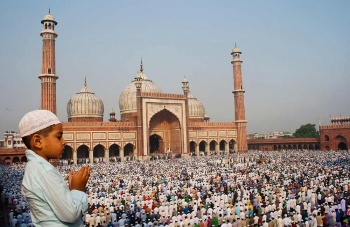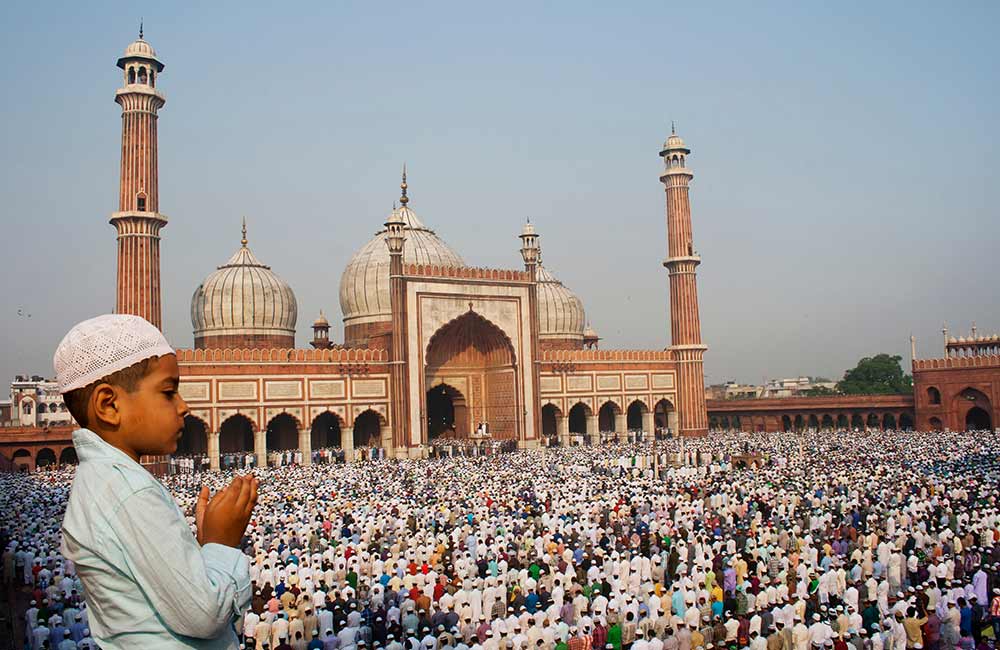
.jpg) Prof. M. Aslam
Prof. M. Aslam

Fasting in one form or the other does exist in almost all the religions. We are having “Navaratra Fasting” for nine days among Hindus. Similarly, Hindu women fast for a day – “Karwa Chouth” -- for the well-being of their husbands. The Christians (Catholics) do have 40 days fast but it is not mandatory, but fasting on ‘Ash-Wednesday (beginning of Eastern Season of fasting and abstinence) and ‘Good Friday’ is mandatory except for sick and pregnant women. Similarly, fasting or ‘Roza’ as practiced by Muslims is an elaborate process lasting for full month every year.
What we observe is that there is lack of understanding among people from different religions about the essence behind such fasting and we are carried away more by the festivities. It is, therefore, necessary that we highlight the essence of fasting to help understand and appreciate such practices. Since Ramadan fasting is halfway through, we will highlight its social significance.
Ramadan -- the month of fasting -- is the holiest month in the Islamic calendar. ‘Roza’ or fasting not only provides an opportunity to the believers to reinforce their faith in the Almighty but in essence is a wonderful process of self-purification full of great social significance.
What does Muslim Fasting -- Roza -- mean? It essentially means that a practitioner -- Rozadar -- has to fast from dawn to dusk for a month after the moon of month of Ramadan is sighted. A person on fast has to have ‘sahri’ or pre-dawn meal. It is light meal which can be taken up to roughly one hour and twenty minutes before sunrise.
The breaking of fast is called ‘Iftar’. The fast has to be broken immediately after the sunset with any food available but dates are preferred. After breaking the fast one can take anything till the next ‘sahri’. A Muslim in general and a ‘Rozadar’ (one who keeps the fast) has to observe five-time prayers and all other things necessary to keep the fast intact.
Normally the fast should not affect the daily avocations, and it should not be a pretext for neglecting normal duties. Islam never approves, much less demands, of keeping vigil during the whole night and passing the following day in sleep and indolence. Fast means a greater effort to perform all the usual duties and something else, more prayers and more charity, and all this in the absence of food and drink. Fasting should make one remember the hunger and starvation of the poor and develop empathy for the deprived people. It is an opportunity to experience hunger so that people will understand the pain of the hungry and will go forward to help them. Ramadan fasting is also an exercise in self-discipline.
Basic Objective
The basic objective of this month-long annual process is to mould the behaviour and pattern of life of its practitioners in such a way that they turn out to be ideal human beings. It implies that a person observing fast will not only observe abstinence from eating and drinking but will get into a sublime state of mind in order to develop positive feelings. It essentially means restraining oneself from listening, speaking, hearing or thinking bad about others. The expectation is that if one passes through this process of self-purification for a period of one month, its impact will last at least for remaining eleven months, when this process will be again repeated.
Social Significance
The other areas of social significance expected to be developed and addressed during this holy month include helping the poor through alms, charity and practicing the concept of neighborhood and hospitality. Apart from helping to purify mind, body and soul through the process of self-purification, addressing these areas of social significance are bound to help people to shed all those things which are not socially desirable.
A true Muslim is expected to take stock of his personal wealth, both cash and kind, every year and calculate ‘Zakat’ at the rate of about 2.5%, which is to be earmarked for distribution among the poor and needy. In return God will safeguard his wealth and property. This is normally done in the month of Ramadan. The returns promised on charity particularly in the month of Ramadan are very high. It is promised that if one gives a charity of Rs. 10 during this month he will get blessings (sawab) that is 70 times more than the original amount. What a wonderful scheme to bring about social justice! If all the rich and well-to-do Muslin families practice this concept of charity, there will be very few dying for hunger and shelter in the colonies inhibited by desperately poor people.
The practice of the concept of neighbourhood is equally important. It has wider connotations than its literal meaning. The Prophet (SW) had said, “One should behave decently with the whole of humanity and foremost among them is your neighbour.” If one connects it with the concept of fasting, an immediate implication is that a true Muslim cannot see any human being hungry, even if it means having to sacrifice ‘iftar’ and to continue fasting without eating anything for the next day. Similarly, a true Muslim cannot see a human being in pain or misery. It applies to both immediate neighborhood as well as humanity at large. What we are witnessing around us in the name of Islam is not Islam. In essence Islam in general and ‘roza’ in particular teaches a person to address human concerns and values.
It is high time that Muslims face the realities of contemporary situation and demonstrate through observance of ‘Roza’ (in its totality), Islam’s relevance in today’s world. One of the greatest advantages of observing the month of fasting is that its true observance inculcates in a person a habit of speaking truth -- a commodity that is becoming very rare nowadays. If a person speaks truth, practice the concept of hospitality and neighborhood and gives charity as advocated above, the person will certainly become a true ‘Insan’ -- human being -- and will be bestowed with God’s blessings and protection, which we all need so desperately in these tough times.
(The writer is a Sociologist and has served as Vice-Chancellor of IGNOU. He can be reached at profaslam10@gmail.com)